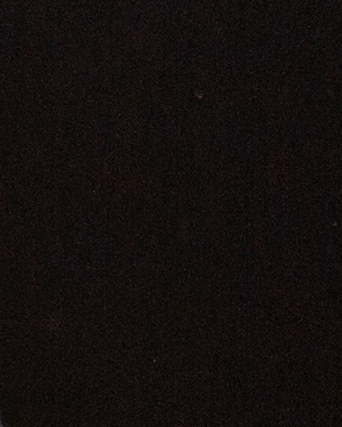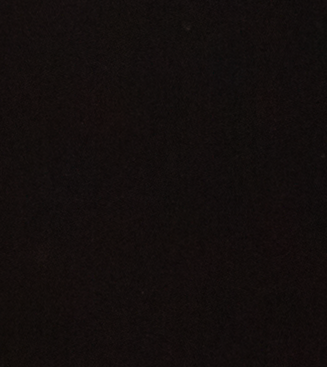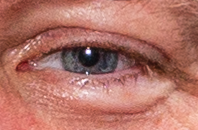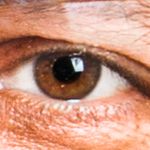- Home
- Stock Contributors
- Discussions
- Re: Rejected due to copyright issues, can you spot...
- Re: Rejected due to copyright issues, can you spot...
Copy link to clipboard
Copied
Hello, ths pic was rejected due to copyright issues, but Icant really see them, can you help me spotting the issue for further care? The picture reflects a London street at a rainy night and was labeled LONDON STREETS IN A RAINY NIGHT. And since im very new to this activity any technical input will also be very appreciated. Thanks in advance.

 1 Correct answer
1 Correct answer
Hi Wander,
You need to remove all the writing and pictures from the bus, and buildings. At the cinema windows (behind the bus) are posters advertising movies; those must be removed.
Another issue with you image is grain/noise. You need to magnify your image at 100 - 200% to inspect for grains.
Best wishes
JG
Copy link to clipboard
Copied
Hello Wander-lust, I can feel this street scene - been on it. Nice!. Here's the thing, you must learn about the copyright business part of photography. It would take me pages to expalin in any detail what it is all about nowdays. If you want to sell your photos on Adobe Stock, you must be certain that you have conformed to the various things required by Adobe. Here is a bit of information from one of our staff and several web sites to visit and readup on the subject. Yes, at some point in your career you will benefit from this education. Best regards, JH
Mat sent this our FYI. It is the beginning of the release information track.
We do have an "owners manual" so to speak. Our learn, and support pages have recently been updated and will provide you with a thorough range of information
An architecture/building would also fall in the "foggy" category. Property release and protection guidelines for Adobe Stock should give you a clearer understanding of what is required. Known image restrictions will give you a more comprehensive knowledge of what is not accepted, and with other's, what composition is accepted. To the extent of the strictness and tightness of the reviews, I do not think many get past the reviewers.
However, based on the phrase "for your own protection" used in other discussions I've read, it can be interpreted as the contributor would be included for litigation. I hope your questions, and curiosity was satisfactorily addressed.
Copy link to clipboard
Copied
Thanks Jo, I will review all that info. ![]()
Copy link to clipboard
Copied
Hi Wander,
You need to remove all the writing and pictures from the bus, and buildings. At the cinema windows (behind the bus) are posters advertising movies; those must be removed.
Another issue with you image is grain/noise. You need to magnify your image at 100 - 200% to inspect for grains.
Best wishes
JG
Copy link to clipboard
Copied
To add to Jacquelin's analysis:
Only the flags in the foreground are sharp. I do not think that this will be enough for a picture like this.
Copy link to clipboard
Copied
Thanks Abambo, I shall start to check my pics at 200% enlargement in the future to prevent that. ![]()
Copy link to clipboard
Copied
Thanks Jaqueline
I will start reviewing my pic at 200% zoom from now on.
It raises me another question tho, would all that manipulation (removing/hiding stuff) add to much noise/objects to the pic? How do I prevent the quality of my pictures from being affected from the photoshp handling? So to what extent can I photoshop a pic without changing it for worst?
Thanks again ![]()
Copy link to clipboard
Copied
Wander-lust, There are so many free tutorials available to you, enter the wonderland and begin the trial and error process we all go through. I am still learning and watching tutorials daily. Open the information for stock contributors Adobe has created and jump on the learning curve. Best to you. JH
Copy link to clipboard
Copied
Thanks Jo
I shall do as recommended, I read the basics on the Adobe page, but its still a lot of not evident stuff still to learn regarding the copyright issues. I understand this is a critical issue to address when it comes to avoid future problems. Try and error will be teaching me as well as the tutorials you mention. Best regards. WL
Copy link to clipboard
Copied
Wander-lust wrote
but its still a lot of not evident stuff still to learn regarding the copyright issues.
Most ip refusals may be reduced to logos of products left in the picture, also logos of only locally known products. Other problems may come from taking a picture of a protected architecture. A non exhaustive list can be found on the Adobe site.
A third problem may arise from having recognisable people in the picture. So basically street photography is a no go for stock. You need a model release from every person in the picture (even if it is a poster of a person...).
You also need a property release if you are photographing private areas. That may also be "public" private areas like museums...
Copy link to clipboard
Copied
Wander-lust wrote
It raises me another question tho, would all that manipulation (removing/hiding stuff) add to much noise/objects to the pic? How do I prevent the quality of my pictures from being affected from the photoshp handling? So to what extent can I photoshop a pic without changing it for worst?
My general counsel is to photoshop pictures so that they do not appear to be photoshopped -- so do not overdo any edits. This is not about art but about craft.
Shoot in raw! That is very important. Load the picture into Lightroom or similar. Do standard edits from there: Lens correction, noise reduction, cropping, easy spot removals, exposure, contrast, white balance, etc corrections.
Open your corrected file into Photoshop (or similar). Stamp out logos and other disturbing objects and correct anything else that you can't do with your raw editor. Save your edits as a Photoshop or TIFF file.
As a last step, save a high quality JPEG file. The JPEG file should basically look like the perfect shoot out of the camera. Upload that.
Copy link to clipboard
Copied
Thanks Abambo
Most of my pics are already taken (actually like a zillion of them) but in the future I shall start shooting in RAW as you recommend. I use to save my jpegs at best quality but I dont normally have the RAW file, hence I use Photoshop noise reduction which im not sure to what extent correct those issues.
Since I have an extended collection of pictures from my travels around half a world, I started this activity as a way to share my views, get feedback from more expert people and perhaps get some recognition in the form of comments or even selling stuff.
Thanks a lot
WL
Copy link to clipboard
Copied
Wander-lust wrote
I use to save my jpegs at best quality but I dont normally have the RAW file, hence I use Photoshop noise reduction which im not sure to what extent correct those issues.
Experience will show you how much corrections are needed. Sometimes it's a trial and error.
JPEGs: Your camera takes raw pictures, processes those into JPEG according to your settings and saves them on a card. You now have two situations:
- Processing is fine, and no need for postprocessing. You're fine, but that is quite rare with my pictures. Most need some adjustments.
- There is a need for additional processing. That is bad, as JPEG compression is lossy and the bit depth limited to 8 bits/colour. So there are a lot of information lost during the processing, information that may be necessary to enhance your picture. In addition, the noise reduction applied may not be selective enough, flattening out some details. Those information are lost for ever. In addition, the white balance may be way off the ideal situation. Also here you can't adapt the same way as with a raw file. This said, the information may well be adjusted to what is acceptable for Adobe stock.
You need to know that each time you resave a JPEG file, you will add to the compression error, so you should avoid miltiple generations. Edit as far as possible not-destructively, save intermediates as Photoshop and save only the final image as JPEG for uploading to Adobe stock.
This iso800 noise pattern needs to be corrected:

The corrected version:

Details are still looking great. Luminance 45, Colour 65 in Lightroom.
 against the uncorrected version
against the uncorrected version  .
.
Needless to say: as I prefer the uncorrected version and I do not intend to upload this picture to stock, it will not get noise reduction above standard. If I would upload to stock, I would selectively do noise reduction and with different strength, depending on the image part.
Copy link to clipboard
Copied
Abambo, thanks for your insight, I am learning hot to process a pic with minimun distortion of the base info in Photoshop, that for a start, protecting the original image, using the adjustment layers instead of direct adjustments and keeping the PSD file until finished. That should start reducing noise and objects. My adjustments usually affects levels, noise, contrast and eventually toning, now i have to add the removal of unwanted scripting and brands, which i shall learn to do without damaging the original info.
Thanks for your help, its good to know how others deal with this issues while learning.
Copy link to clipboard
Copied
Layers and smart objects will be your friend.
Copy link to clipboard
Copied
Hi Wonder,
There are some online courses that you can benefit from with regards best practice editing of JPG images. If you check LinkedIn Learn you may find at least one such course, however as highlighted by Abambo, nondestructive correction of JPG images is very difficult, to say the least.
Best wishes
JG
Copy link to clipboard
Copied
jacquelingphoto2017 wrote
however as highlighted by Abambo, nondestructive correction of JPG images is very difficult, to say the least.
What is lost is lost. You can only limit the damage by working as non-destructively as possible.
Copy link to clipboard
Copied
Thans for your help Jaqueline, I am currently reviewing Ln and youtube where I found several tutorials for the purpose as you recommend.
Copy link to clipboard
Copied
Hi Wonder,
As highlighted by Abambo, take your photos in RAW. When you do so, using Photoshop to edit, the image opens it in RAW editor. Editing in RAW is nondestructive. After correcting white balance, grain/noise, etc you can click on "Open Image" to open in Photoshop, or open the image as a smart image in Photoshop directly from the RAW editor. In photoshop, it is recommended you use layers for corrections, however you may choose to do direct correction for removal of unwanted items and straightening of image. All totally nondestructive if your photo was taken in RAW.
I use photoshop for my editing.
For example, the strip was removed from the side of the pickup using Photoshop. Small flyers were across the eve of the shop front; those were removed using Photoshop. No removal was done using best practice, namely layers.

Best wishes
JG


